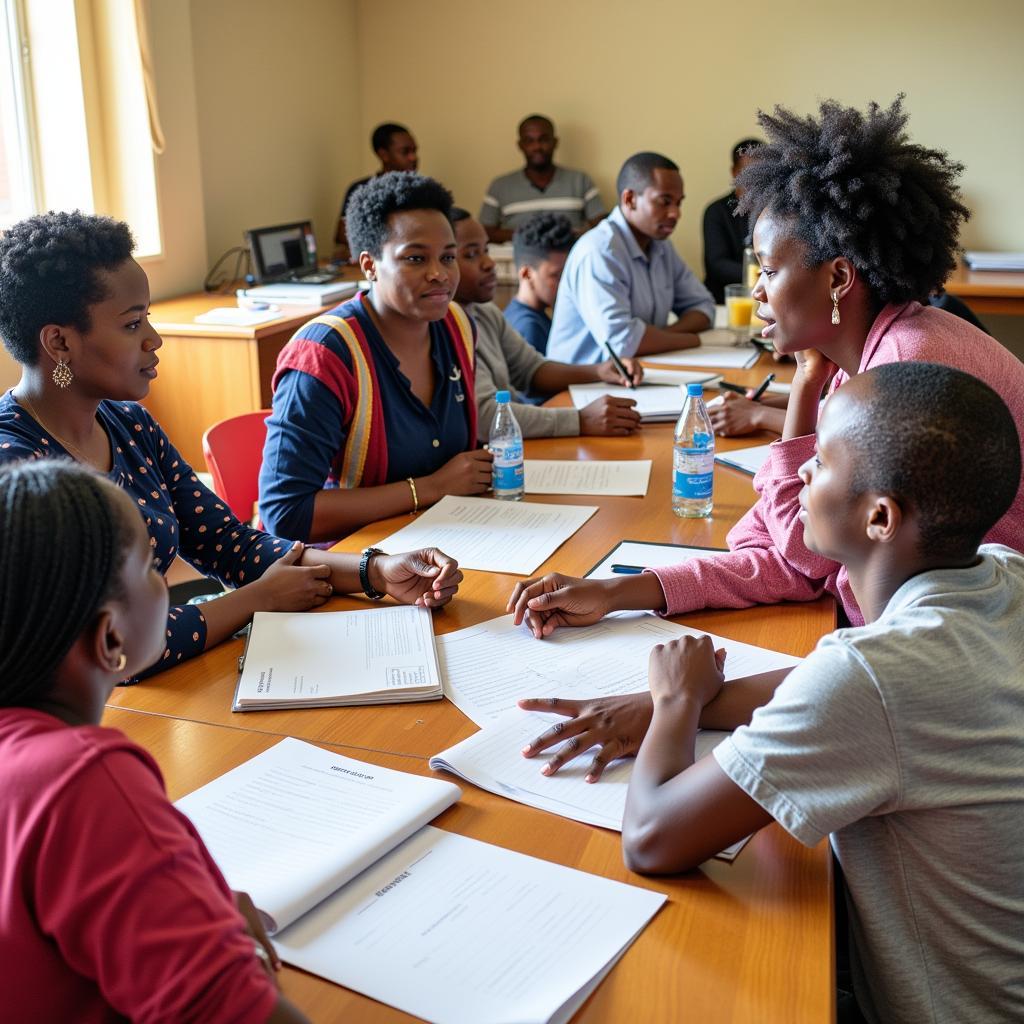African Development Bank Office in Pretoria: A Hub for Continental Growth
The African Development Bank (AfDB) office in Pretoria plays a crucial role in fostering sustainable economic development and social progress across the African continent. This article delves into the significance of the AfDB’s presence in South Africa’s administrative capital, exploring its functions, impact, and contributions to regional development. We will also examine the bank’s strategic partnerships, key initiatives, and future prospects in driving transformative change across Africa.
Understanding the AfDB’s Role in Africa
The AfDB, established in 1964, serves as a vital financial institution dedicated to promoting sustainable economic development and poverty reduction in its African member states. It achieves this through various financial and technical assistance programs, fostering regional integration, promoting private sector development, and addressing critical development challenges. The AfDB’s presence in Pretoria is strategically significant, enabling the bank to effectively engage with regional stakeholders, governments, and development partners. The Pretoria office serves as a hub for coordinating the bank’s operations in Southern Africa.
You can learn more about African currencies here: african currency rate today
The Importance of the Pretoria Office
The Pretoria office plays a crucial role in coordinating the bank’s activities in the Southern Africa region. By being located in Pretoria, the AfDB gains valuable insights into the specific development needs and challenges faced by countries in the region, allowing it to tailor its interventions and support initiatives more effectively. It also facilitates close collaboration with key stakeholders, including government agencies, private sector organizations, civil society groups, and other development partners, fostering a synergistic approach to regional development.
 AfDB Staff Meeting in Pretoria Office
AfDB Staff Meeting in Pretoria Office
Key Initiatives and Programs of the AfDB in Southern Africa
The AfDB’s portfolio in Southern Africa encompasses a wide range of sectors, including infrastructure development, agriculture, education, health, and private sector development. Some key initiatives include: promoting regional infrastructure projects such as the development of transport corridors and energy networks, supporting agricultural transformation through investments in irrigation, market access, and technology adoption, investing in human capital development by supporting education and skills development programs, strengthening health systems and promoting access to quality healthcare services, and fostering private sector growth by providing financial and technical assistance to businesses. These diverse interventions contribute to inclusive and sustainable economic growth in the region. For information about African capitals, visit african countries capitals and currencies.
Focusing on Sustainable Development Goals
The AfDB aligns its operations with the Sustainable Development Goals (SDGs), contributing to broader global development efforts. The bank’s work in Southern Africa directly contributes to achieving several SDGs, including eradicating poverty, ensuring access to quality education and healthcare, promoting sustainable economic growth, and fostering gender equality. By targeting these goals, the AfDB promotes a holistic approach to development, addressing the interconnected challenges facing the region.
“The AfDB’s Pretoria office is instrumental in facilitating impactful development initiatives in Southern Africa,” says Dr. Nomusa Makhubu, a leading development economist. “Their strategic partnerships and commitment to sustainable development are driving positive change across the region.”
 AfDB Community Engagement Workshop in Pretoria
AfDB Community Engagement Workshop in Pretoria
The Future of the AfDB in Pretoria and Southern Africa
The AfDB remains committed to strengthening its presence and impact in Southern Africa. The Pretoria office is poised to play an even more significant role in driving sustainable development initiatives, fostering regional integration, and promoting inclusive economic growth. The bank’s focus on innovation, technology, and private sector engagement will be crucial in addressing the evolving development challenges and opportunities in the region.
“The AfDB’s work is critical for unlocking Africa’s potential,” adds Mr. Thabo Mbeki, a renowned development expert. “Their commitment to local ownership and sustainable solutions is essential for long-term progress.”
Conclusion: The African Development Bank Office in Pretoria: A Catalyst for Progress
The African Development Bank Office In Pretoria serves as a pivotal hub for promoting sustainable development and economic growth in Southern Africa. Through its strategic partnerships, targeted interventions, and commitment to the SDGs, the AfDB is making significant contributions to improving the lives of people across the region. The bank’s continued engagement and focus on innovation will be essential in addressing future development challenges and realizing Africa’s vast potential. For those interested in African capitals, check out african countries and its capital.
FAQ
- What is the main role of the AfDB? To promote sustainable economic development and reduce poverty in its member countries.
- Where is the AfDB headquartered? Abidjan, Côte d’Ivoire.
- How does the AfDB support development? Through financial and technical assistance, fostering regional integration, and promoting private sector development.
- What is the significance of the Pretoria office? It coordinates AfDB operations in Southern Africa.
- How does the AfDB contribute to the SDGs? Its programs align with several SDGs, including poverty eradication, quality education, and sustainable economic growth.
For a PDF with African capitals, see african countries and their capitals pdf. If you’re curious about languages and currencies, african countries capitals currency and language is a helpful resource.
Need support? Contact us 24/7: Phone: +255768904061, Email: kaka.mag@gmail.com or visit us at Mbarali DC Mawindi, Kangaga, Tanzania.
